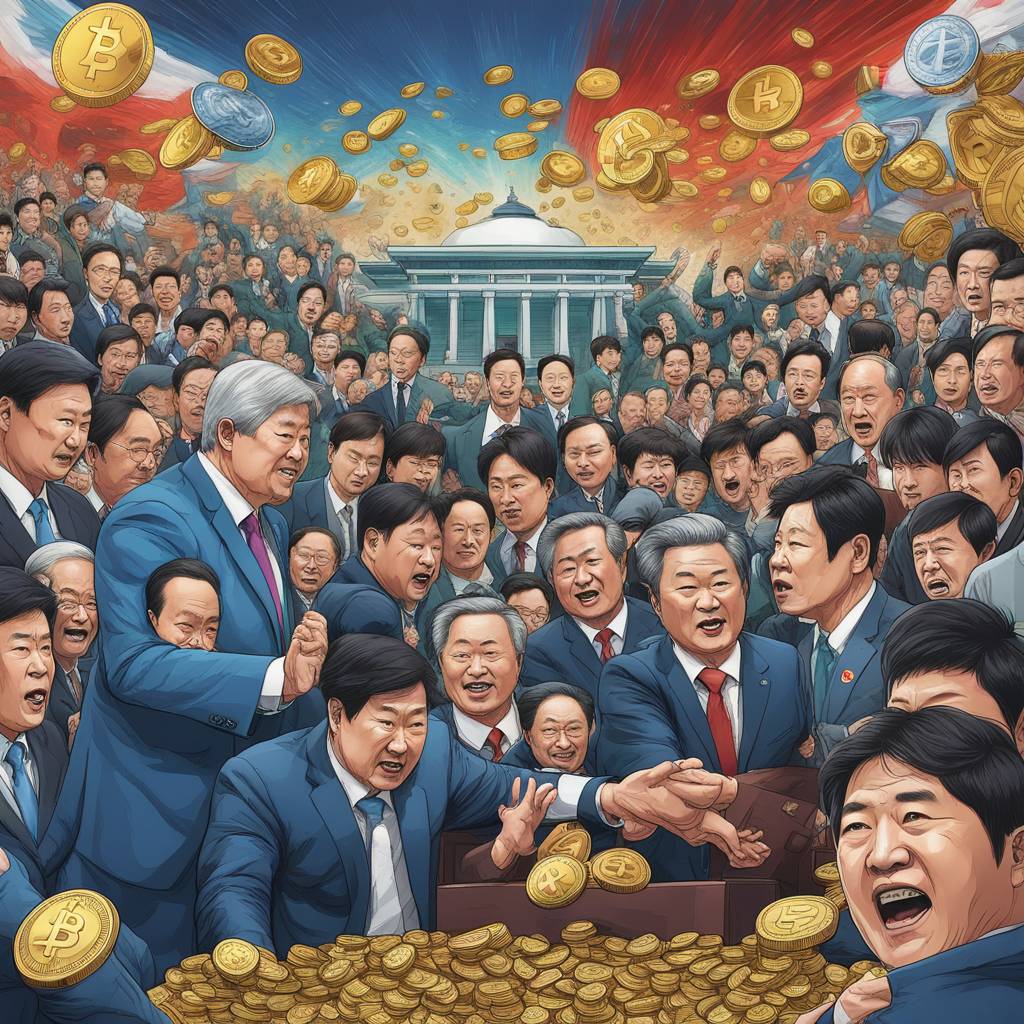As South Korea prepares for parliamentary elections on April 10, politicians from different parties are accusing each other of engaging in crypto-related wrongdoings. The Democratic Party currently dominates the parliament, but the People’s Power Party led by President Yoon Seok-yeol is hoping to secure a victory. With scandals like Coin Gate still ongoing, candidates have alleged that their opponents are holding secret crypto stashes. Media outlets in the country have accused politicians of engaging in mudslinging activities, with many allegations focusing on crypto holdings that were revealed in mandatory public disclosures at the end of March.
The mandatory public disclosures revealed that several major public figures in South Korea, including senior judges, hold Bitcoin and other cryptocurrencies. Lawmakers and National Assembly candidates were also required to submit disclosures, leading to the revelation that some candidates hold significant amounts of Bitcoin. The People’s Power Party pointed out that a Democratic Party candidate, Kim Jun-hyuk, holds at least $84,000 worth of Bitcoin, questioning the propriety of owning such a large amount of crypto while Coin Gate investigations continue. The People’s Power Party called on Kim to step down, alleging that he failed to disclose other assets as well.
In another instance, a crypto-related spat erupted between rival candidates in the Sokcho, Goseong, Inje, and Yangyang constituency. Democratic Party candidate Kim Do-gyun accused People’s Power Party candidate Lee Yang-soo of making speculative coin investments in his son’s name. Lee’s son allegedly owns dozens of different cryptoassets now worth over $18,200. Kim Do-gyun claimed that the investment was improper and announced that his party would be launching a public inquiry into Lee’s alleged wrongdoing. In response, Lee defended himself by pointing out that Kim Do-gyun was the majority shareholder of a firm named IBP, which launched its own cryptoasset in 2019.
As election day approaches, the issue of crypto holdings and investments has become a central theme in the political discourse in South Korea. The revelations of crypto holdings by public figures and candidates have raised questions about transparency and legality, leading to accusations and investigations. While the Democratic Party and the People’s Power Party are engaging in mudslinging tactics related to crypto, voters will need to consider these allegations and decide which candidates they trust to represent their interests in the National Assembly. The outcome of the parliamentary elections on April 10 will likely have implications for the future regulation and adoption of cryptocurrencies in South Korea.
The outcome of the parliamentary elections on April 10 will have significant implications for the crypto industry in South Korea. With major political parties accusing each other of involvement in crypto-related wrongdoings, the public is closely watching how these issues will play out in the election. The fact that public figures and candidates hold significant amounts of Bitcoin and other cryptocurrencies underscores the growing importance of digital assets in the country. The results of the election will determine the direction of crypto regulation and policy in South Korea, shaping the legal framework that will govern the industry in the coming years. As voters prepare to cast their ballots, they must consider the candidates’ crypto holdings and conduct in making their decision at the polls.


